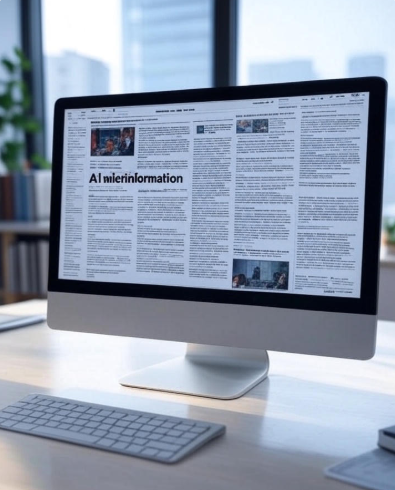March 30, 2025
In a world where technology continues to reshape every facet of our lives, Apple is poised to make its most ambitious move yet into the healthcare sector. According to recent insights from Bloomberg, the tech giant is preparing to roll out a revamped Health app paired with an innovative AI-powered doctor service. This development, set to debut as early as spring 2025, could redefine how we approach personal health and wellness. With a reputation for seamless integration and user-centric design, Apple’s latest venture promises to bring personalized healthcare into the palms of our hands—literally. Let’s dive into what this means for consumers, the healthcare industry, and the future of AI in medicine.
A New Era for the Health App
Apple’s Health app has long been a staple for iPhone users, aggregating data from wearables like the Apple Watch to track metrics such as steps, heart rate, and sleep patterns. However, the upcoming overhaul—codenamed Project Mulberry—takes this functionality to an entirely new level. The revamped app isn’t just about collecting data; it’s about making sense of it in a way that’s actionable and tailored to the individual.
Imagine an app that doesn’t just tell you how many calories you’ve burned but also suggests what to eat next based on your activity, medical history, and even your mood. The new Health app aims to integrate advanced features like food tracking, a move that aligns with growing consumer interest in nutrition as a cornerstone of wellness. By leveraging data from external medical experts and in-house physicians, Apple is training its AI to offer recommendations that go beyond generic advice, aiming for a level of personalization that feels almost bespoke.
This isn’t a small tweak—it’s a paradigm shift. The app’s evolution reflects a broader trend in tech: the move from passive tools to proactive companions. For Apple, this means transforming the Health app from a dashboard into a dynamic health coach, one that’s always learning, adapting, and guiding users toward better outcomes.
The AI Doctor: Your Virtual Health Companion
At the heart of this overhaul is the introduction of an AI doctor service, a feature that could be the game-changer Apple is betting on. This isn’t just a chatbot spitting out WebMD-style responses. According to Bloomberg, the AI is being designed to “replicate” a doctor, acting as a personal health coach with the ability to interpret complex health data and provide informed recommendations. Trained with input from real physicians, this virtual doctor aims to bridge the gap between clinical expertise and everyday accessibility.
Picture this: You wake up feeling off, and your Apple Watch detects an irregular heart rate. Instead of Googling symptoms and spiraling into panic, you open the Health app. The AI doctor analyzes your vitals, cross-references them with your medical history, and suggests whether you should rest, hydrate, or seek immediate care—all in a matter of seconds. It might even remind you to log your breakfast to see if your diet’s to blame. This level of immediacy and insight could empower users to take control of their health like never before.
Of course, an AI doctor raises questions about accuracy and trust. Apple’s approach seems to address this by grounding the system in real-world medical expertise. By collaborating with external specialists and its own team of doctors, the company is ensuring that the AI’s advice isn’t just data-driven but clinically sound. Still, it’s unlikely to replace human physicians entirely—nor is that the goal. Instead, it’s positioned as a first line of defense, a tool to triage concerns and guide users before they need professional intervention.
Why Now? The Timing of Apple’s Health Push
Apple’s timing couldn’t be more strategic. The global healthcare landscape is ripe for disruption. Rising costs, strained systems, and an aging population have created a demand for accessible, preventative solutions. At the same time, advancements in AI and wearable technology have reached a point where they can deliver meaningful insights at scale. Apple, with its ecosystem of devices and a user base numbering in the billions, is uniquely positioned to capitalize on this convergence.
The COVID-19 pandemic also accelerated interest in digital health tools, from telemedicine to fitness apps. Consumers are more health-conscious than ever, and they’re looking for solutions that fit into their lives seamlessly. Apple’s closed ecosystem—where hardware, software, and services work in harmony—gives it an edge over competitors. The Apple Watch already tracks health metrics with impressive precision; pairing that with an AI-driven app could create a feedback loop that’s both powerful and intuitive.
Moreover, this move aligns with Apple’s broader shift toward services. As iPhone sales growth slows, the company has leaned into subscriptions like Apple Music, Apple TV+, and now, potentially, health-focused offerings. A robust Health app with an AI doctor could become a cornerstone of Apple’s service portfolio, driving engagement and loyalty while tapping into the lucrative wellness market, projected to reach $7 trillion globally by 2025.
The Bigger Picture: AI in Healthcare
Apple’s foray into AI-driven healthcare isn’t happening in a vacuum. The industry is buzzing with similar innovations. Companies like Google and Amazon are exploring AI for diagnostics and logistics, while startups are developing tools to predict everything from diabetes to mental health crises. What sets Apple apart is its consumer-first approach and its ability to integrate AI into a device most people already carry.
This raises an interesting point: AI in healthcare isn’t just about technology—it’s about trust and adoption. Apple’s brand carries a level of credibility that could ease skepticism about AI doctors. If users trust Siri to set reminders, they might trust an AI to monitor their health. That said, the stakes are higher here. A misinterpreted symptom isn’t the same as a missed alarm, and Apple will need to navigate regulatory hurdles and privacy concerns to pull this off.
Speaking of privacy, Apple has long touted its commitment to user data protection. The Health app’s AI will likely process sensitive information—think heart rates, sleep patterns, and dietary habits. How Apple balances this with its privacy-first ethos will be critical. On-device processing, a hallmark of Apple’s AI strategy, could mitigate risks by keeping data local rather than in the cloud. Still, the company will need to be transparent about how it uses and secures this information to maintain consumer confidence.
Challenges and Opportunities
No innovation comes without challenges, and Apple’s health push is no exception. For one, the AI doctor’s effectiveness will depend on the quality and diversity of its training data. If it’s skewed toward certain demographics, it risks delivering biased or incomplete advice. Apple will need to ensure its system accounts for a global audience with varied health needs.
Regulatory approval is another hurdle. Healthcare is a heavily regulated space, and an AI offering medical recommendations will face scrutiny from bodies like the FDA. Apple will need to prove that its service is safe, reliable, and not overstepping into territory reserved for licensed professionals. This could delay the rollout or limit its scope initially.
On the flip side, the opportunities are immense. If successful, Apple could set a new standard for digital health, influencing how other tech giants approach the space. It could also deepen integration with the Apple Watch, making it an indispensable tool for health monitoring. Imagine future iterations where the watch detects early signs of illness and the AI doctor crafts a recovery plan—all synced with your calendar and reminders. The potential for a holistic health ecosystem is tantalizing.
What This Means for You
For the average user, this could be a game-changer. The revamped Health app and AI doctor promise a level of convenience and insight that’s hard to match. Whether you’re a fitness buff tracking macros or someone managing a chronic condition, the personalized guidance could make health less daunting and more approachable. It’s like having a doctor in your pocket—minus the co-pay.
For the healthcare industry, it’s a wake-up call. Traditional providers might need to adapt to a world where patients arrive armed with AI-generated insights. It could also spark collaboration, with doctors and hospitals partnering with Apple to refine the system or integrate it into care plans.
The Road Ahead
As we look toward spring 2025, Apple’s health ambitions are a reminder of how far technology has come—and how much further it can go. The revamped Health app and AI doctor service aren’t just products; they’re a vision of a future where healthcare is proactive, personal, and powered by intelligence. Whether it lives up to the hype remains to be seen, but one thing’s clear: Apple is ready to take a big bite out of the healthcare apple.
What do you think—will this change how you manage your health? The countdown to spring is on, and the world will be watching.



